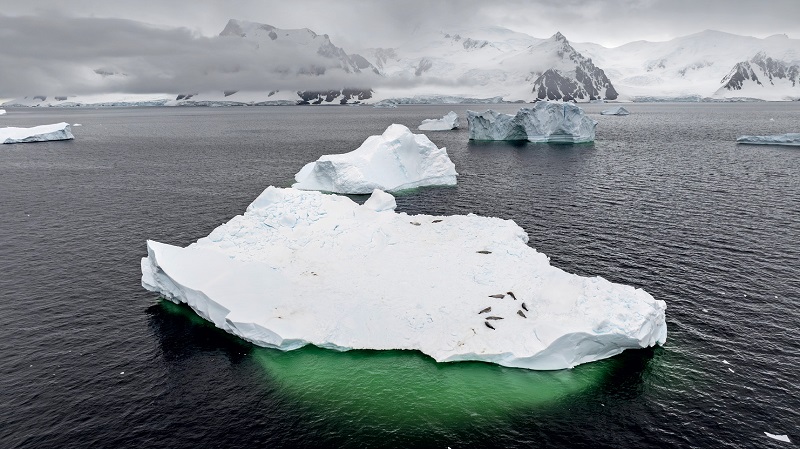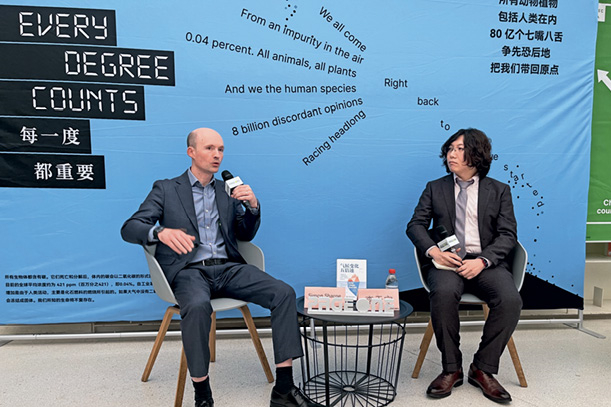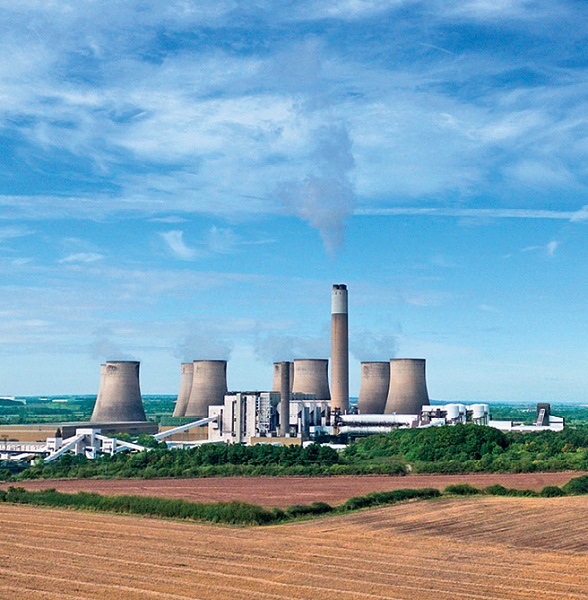Ahead of COP29, British climate expert Simon Sharpe had an in-depth exchange with Chinese readers who are concerned about climate change issues at the launch of the Chinese translation of his book, Five Times Faster: Rethinking the Science, Economics, and Diplomacy of Climate Change, in Beijing.
Sharpe is managing director of S-Curve Economics, a pioneering non-profit organization advancing understanding of the economics behind the low-carbon transition, and director of economics for the UN High Level Climate Champions, a global campaign to obtain support from businesses, cities, regions and investors for zero carbon recovery. He was previously deputy director of the U.K. government’s COP26 Unit, where he led international campaigns on energy, transport, land use, science and innovation.
The event in Beijing was one of the #everydegreecounts series of events initiated by the British Embassy in China, where Sharpe discussed the impact of global warming as well as effective specific response measures.

A group of seals rest on an ice mass as Turkish scientists conduct an inspection in Antarctica on April 11, 2024 of the southern polar creatures, whose living environment has been heavily affected by the consequences of global climate change.
Reason for Slow Energy Transition
With the rapid development of clean energy technology in recent years, the cost of using clean energy has become lower. But the transition from fossil fuels to clean energy will bring huge costs to society, especially economic development, employment, and the wellbeing of old industrial areas. This is an important reason for the slow energy transition worldwide, Sharpe said.
“The U.K. closed its last coal-fired power station on September 30 this year, saying goodbye to its over 140-year-long coal-fired power generation. I’m very happy about that, but it’s a very long process,” he added. “The period which was the most difficult was probably in the 1980s, when lots of coal mines were shut down. It had nothing to do with climate change or the clean energy transition. It was partly to do with global competition as the mines in the U.K. were not competitive any more. It was also influenced by the discovery of gas in the North Sea. I think as a country, we managed it badly as there were communities entirely dependent on the coal-fired economy, who were left with no good alternatives. There were really high levels of unemployment and I would say those areas are still badly affected today.”
To reduce carbon emissions and gradually achieve corresponding transformation, Sharpe said governments need to subsidize the deployment of clean technologies, and make regulations to force industries to invest in new technology. “China did it, (in the U.S.) California’s done it, the U.K. is doing it, and Europe’s done it. That moved investment through the global industry into the new technology,” he said.
On the other hand, governments also need to be good at management. Pricing carbon and imposing taxes on traditional fossil fuels could better control the economy. Since 2013, the U.K. has implemented a carbon tax, and since then, the proportion of coal-fired power generation decreased from 40 percent to around 3 percent in 2019, and now to 0 percent. In the future, other fossil fuels such as oil may also face the same path.
“The Chinese society is also facing a similar situation. Now, for the whole world, what needs to be considered is how to avoid affecting communities that rely on traditional energy for survival in the process of transitioning from old to new energy,” he said.

Simon Sharpe (left) shares his insights into climate change with Li Tianyu, a popular podcast anchor in China, during the #everydegreecounts event in Beijing on November 6.
China & Europe Can Work Together
Today, every country has its own policies and methods to address climate change. However, what is needed is a universal policy and action.
“Countries are now fighting alone,” he said. “We have to find ways to work together. The one strongest feeling I have today is that China and Europe should work together to lead the global fight against climate change.”
At the COP26 climate summit held in Glasgow, the U.K., in 2021, China and the U.K. reached agreements on many climate issues, and both regarded each other as important partners for cooperation. However, this year, the European Commission decided to impose a five-year countervailing duty on electric vehicles imported from China, ranging from 17.8 to 45.3 percent. Sharpe called it unfair and exacerbating the risk of trade conflicts – “the last weapon that Europe and America have taken out.”
On the other hand, it was also a sign of China’s success – “China has done such a good job in developing electric vehicles that Europe and America are frightened.” He pointed out that this situation had come up before. “In the 1980s, Japan quickly became very competitive in making cars, and Europe and America were very frightened. They put tariffs, they stopped the imports of Japanese cars,” Sharpe said. The Japanese companies then invested in factories in Europe and America. In the U.K., probably the biggest car manufacturer is Japan’s Nissan. “They share the benefits. Some of the jobs went to Europe and America, and the profits went back to Japan. But generally, that was a win-win solution. I see no reason why we cannot do the same thing this time,” he said.

The Ratcliffe-on-Soar Power Station in the East Midlands on a normal operation day. This was the U.K.’s last remaining coal-fired power station which was shut down on September 30, 2024, ending Britain’s 142-year reliance on the fossil fuel to produce electricity.
“Risk Deposit” for Developing Nations
Many developing countries and regions with fragile natural environments have been bearing the brunt of climate change, such as climate disasters and climate migration caused by rising sea levels.
Therefore, it has become a consensus among many countries, including China, that developed countries should provide global climate financing to developing ones to help them address climate issues. At COP29, a major agenda was the adoption of a new global climate financing target. However, many details, such as how much funding to provide, who will pay, and who can access these funds, are still under discussion.
In recent years, significant progress has been made in global climate governance in terms of political consensus, funding commitments, and technological support. However, there are still many problems in terms of the implementation, and developed countries have not fulfilled their promised climate funding targets in the past.
“For the poorest countries, the biggest difficult they have is not being able to have the finance to invest in clean technologies,” Sharpe said. “There are simple things that make that difficult. One is the interests they face are really high. The second is they have lots of debts, and the interests they pay on them are already high. The third is they keep getting hit by climate disasters, and then they have to spend lots of money in preparing for it.”
So his suggestion is to create a “risk deposit” for these countries to use when facing natural disasters, thereby reducing their borrowing costs. Also, there should be debt relief or even cancellation of their debts.